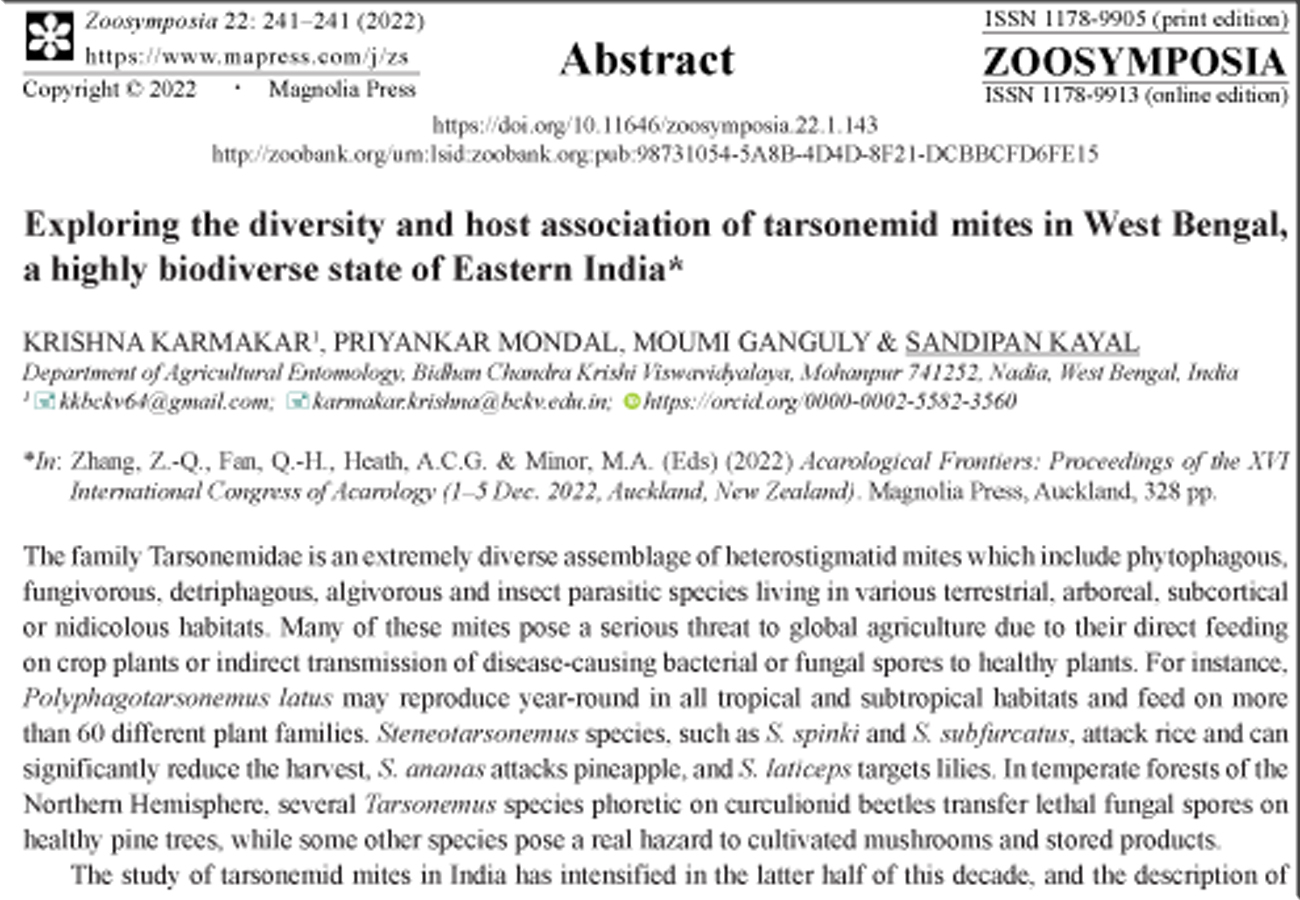Abstract
The family Tarsonemidae is an extremely diverse assemblage of heterostigmatid mites which include phytophagous, fungivorous, detriphagous, algivorous and insect parasitic species living in various terrestrial, arboreal, subcortical or nidicolous habitats. Many of these mites pose a serious threat to global agriculture due to their direct feeding on crop plants or indirect transmission of disease-causing bacterial or fungal spores to healthy plants. For instance, Polyphagotarsonemus latus may reproduce year-round in all tropical and subtropical habitats and feed on more than 60 different plant families. Steneotarsonemus species, such as S. spinki and S. subfurcatus, attack rice and can significantly reduce the harvest, S. ananas attacks pineapple, and S. laticeps targets lilies. In temperate forests of the Northern Hemisphere, several Tarsonemus species phoretic on curculionid beetles transfer lethal fungal spores on healthy pine trees, while some other species pose a real hazard to cultivated mushrooms and stored products.
References
-


